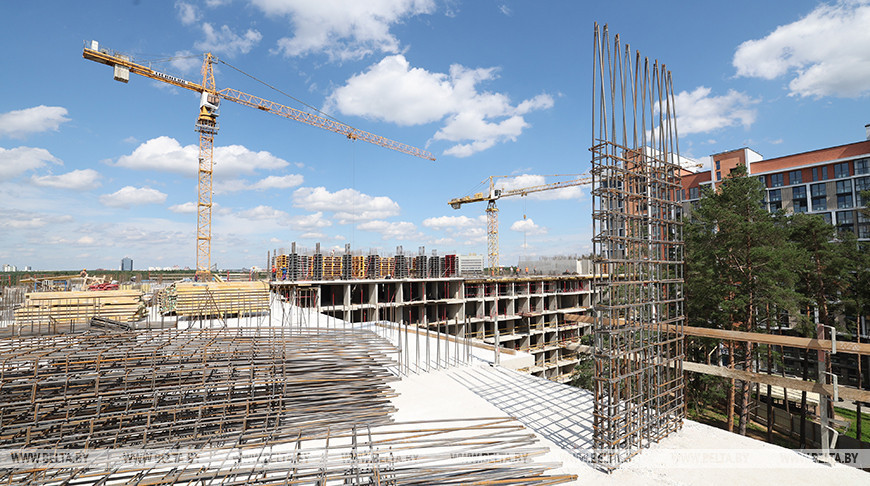
An archive photo
MINSK, 10 August (BelTA) – The Belarusian construction industry’s development priorities for the coming years were outlined to a BelTA correspondent by the Architecture and Construction Ministry.
“The primary goal of the transformations is to overhaul all processes – shifting from quantity to quality,” the ministry explained. This applies to construction practices, territorial development, regulatory framework, innovations and breakthrough solutions, and workforce training.
The ministry noted that this objective will be achieved through construction industrialization – reducing manual labor at construction sites, production facilities, and design stages while increasing the share of prefabricated structures of all types.
“The plan also involves relocating ‘wet processes’ to production premises, quality improvement, robotization of production processes, and implementation of small-scale mechanization tools. These measures will reduce manual labor intensity at construction sites by 10-25% while multiplying productivity,” the ministry added.
Modernization will continue for housing construction plants and large-panel construction organizations, with Belarusian Glass Company being relocated to Minsk, the officials stated.
“Another key focus will be industry digitalization – transferring multiple processes from humans to machines, automating and accelerating document flow while dramatically reducing its volume,” the ministry added.
“The plans include renovation of existing developed areas with qualitative transformation,” officials stated. This means creating comfortable, modern living conditions while shifting from the ‘build more’ principle to a philosophy of improving the existing housing stock (approximately 276 million square meters) in order to meet modern demands for quality and comfortable living environments.
“Innovative development entails introducing new product lines, reducing costs, implementing robotics, enhancing energy efficiency, and building brand reputation,” the statement outlined. “Industrial enterprises must serve as the primary drivers of these innovations.”
Housing construction will advance through improved affordability, expanded rental housing options, single-family home development, and additional incentives for small towns and rural communities (deurbanization), the officials emphasized.
Authorities are considering reforms in construction pricing methodologies to facilitate renewal of fixed assets across all construction industry participants. Additionally, experts will conduct a comprehensive review of regulatory, technical and local legal acts, removing obsolete standards.













